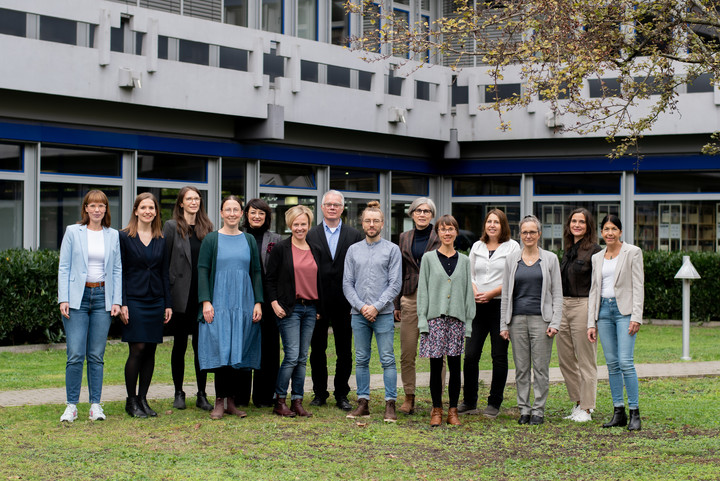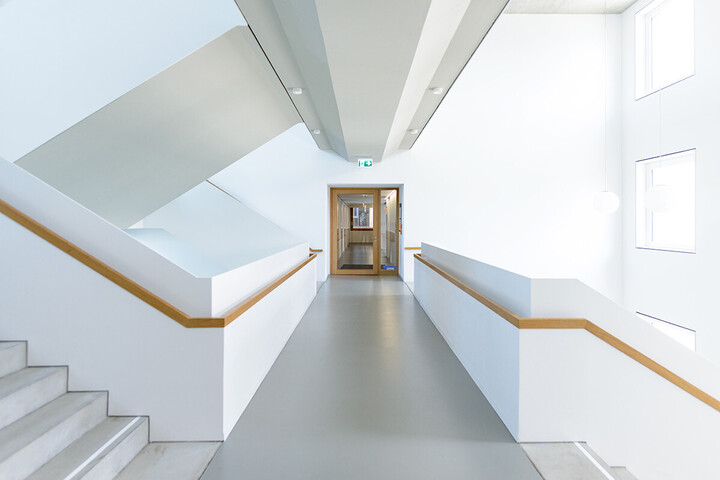About the School of Social Sciences
Approximately 1,600 students are enrolled in programs offered by the School of Social Sciences. They pursue a degree at one of the School’s three departments, Political Science, Psychology, and Sociology. The School employs about 40 professors and 120 academic staff members and is well known for its first-rate research, prestigious degree programs, and outstanding facilities, making it one of the best institutions of its kind in Germany and Europe.
History of the School
Three departments
The School of Social Sciences at the University of Mannheim was initially made up of the departments of Sociology and Political Science only. A chair of Psychology was established in 1996 and, a little later, two chairs of Education were added. The chairs of Education were subsequently renamed Educational Psychology and Psychology of Education respectively and incorporated into the Department of Psychology. Since then, the School of Social Sciences has consisted of the three departments of Political Science, Psychology, and Sociology.The School’s origins (1907-1933)
The School of Social Sciences has a long-standing history that dates back to well before the foundation of the University of Mannheim. The subjects of Psychology and Education have their roots in 1907, when the Städtische Handelshochschule (Commercial College of the City of Mannheim) was founded. At the beginning of the 1920s, the Handelshochschule established the Institute for Psychology and Educational Sciences, introducing a chair of Philosophy, Psychology, and Education. In 1923, Otto Selz, a psychologist, was appointed to this chair.Chair of Sociology (1956)
Following the dissolution of the Städtische Handelshochschule in 1933, it was re-established in 1946 as Staatliche Wirtschaftshochschule (State College of Business and Economics). In 1956, a chair of Sociology was created for the first time, with Eduard Baumgarten being the first chair holder. He was appointed to the position in 1957.School of Social Sciences (1969)
After the area of social sciences had been expanded in the 1960s and the Wirtschaftshochschule had received university status in 1967, the School of Social Sciences of the University of Mannheim was founded in 1969. It has been located in the seminar building in square A5 since 1972. The School’s profile in the first few decades was shaped by renowned university teachers, such as Hans Albert, Martin Irle, Rainer M. Lepsius, and Rudolf Wildenmann.Collaborative research centers
Upon Prof. Martin Irle’s initiative, the Collaborative Research Center 24 “Sozial- und wirtschaftspsychologische Entscheidungsforschung” (Research on Decision Making in Social and Economic Psychology) was established by the German Research Foundation in 1968. Its goal was to analyze individual and collective decision-making processes and it became one the most successful collaborative research centers in the German Research Foundation’s history. After that, two more collaborative research centers in the areas of social sciences, business, and economics were set up: the Collaborative Research Center 504 “Rationalitätskonzepte, Entscheidungsverhalten und ökonomische Modellierung” (Rationality Concepts, Decision Behavior, and Economic Modeling), which went on from 1997 to 2008, and the Collaborative Research Center 884 “Political Economy of Reforms”, which has existed since 2010.Mannheim Centre for European Social Research
There is a close connection between the School of Social Sciences and the Mannheim Centre for European Social Research (MZES). The majority of research projects related to the subject areas of political science and sociology are carried out there. The MZES was founded in 1989 as an interdisciplinary research institute belonging to the University of Mannheim. It is the largest research institution in the field of social sciences at a German university and also assumes a leading position at the international level. Currently, more than 80 researchers work at the MZES, who look at social and political developments in Europe.Organization of the School
The School of Social Sciences is made up of three departments: Political Science, Psychology, and Sociology. Each department has multiple chairs, which are in charge of research and teaching at the School.
The departments are governed by the school board, which is supported by the dean’s office , the School’s central management and administrative unit. The school board is headed by the School’s dean, who apart from his duties as a dean has no other duties at the School.
School council
The school council is made up of representatives that belong to the four groups at the School – professors, academic staff members, non-academic staff members, and students – and are elected by its members. It is the School’s decision-making body, which appoints representatives to the other bodies and committees and which must approve any decisions that are of major significance to the entire School. The school board is supported by committees such as the search committees for professors, the committee on student affairs and teaching, the examination committees of the respective programs, and the doctoral and habilitation committees.Regular professorial meetings
All the professors of the School convene from time to time to discuss anything of relevance for all three departments. In addition, the professors at each department have their own regular plenary meetings. They deliberate on topics relating to their respective subjects and draw up proposals for the school board and the dean’s office. These meetings are informal and take place outside the School’s official bodies and committees.



